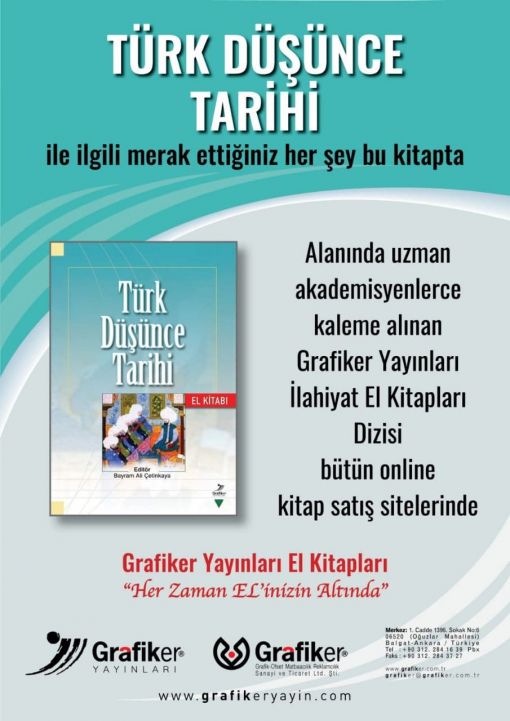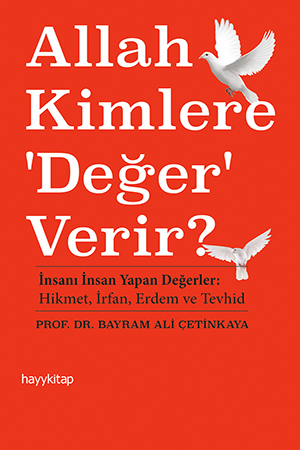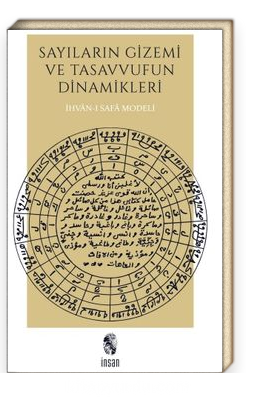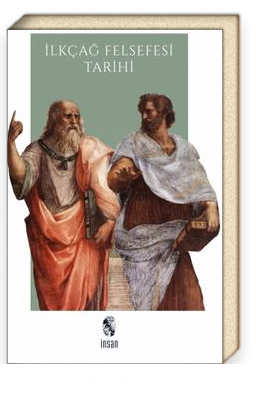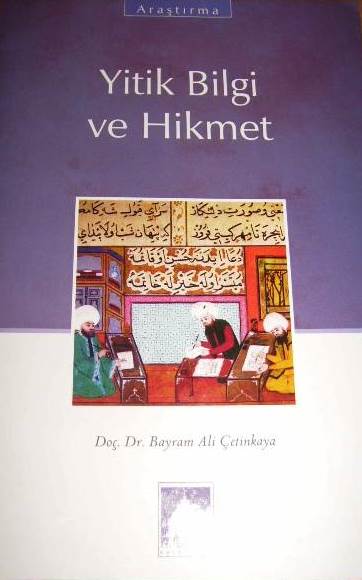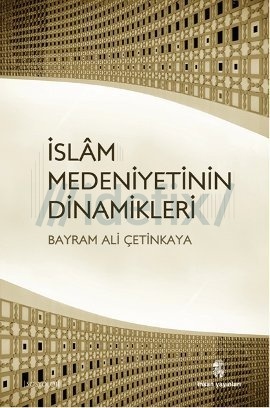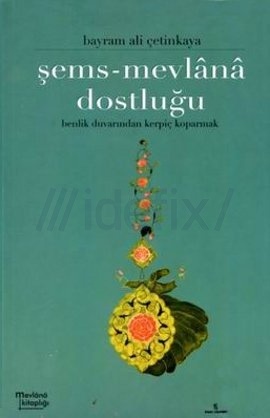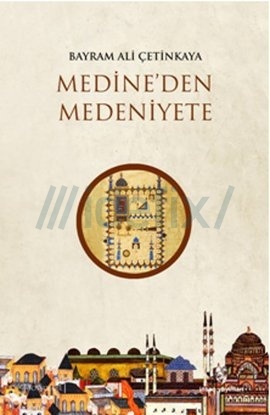THE VENTURE OF THOUGHT FROM EAST TO THE WEST  THE VENTURE OF THOUGHT FROM EAST TO THE WEST Editor in chief: Prof. Dr. Bayram Ali Çetinkaya Publishing house: Insan Publications İstanbul, 2015 Ten Volume, 10800 pages, 427 titles, 279 academician-authors The history of philosophy that witnesses the intellectual venture of humankind represents a multi-dimensional field of research that includes a track of questions and problems that range from the emergence of various philosophical ideas to the classification of these ideas; from what philosophy is and how it developed. The philosophers have debated the relation of philosophy to history of philosophy. Is it enough to be familiar with the history of philosophy in order to produce a genuine philosophy? Or on the contrary, genuine philosophical ideas emerge when we isolate ourselves from the previous philosophical trends. Some favor the latter by claiming that philosophy is nurtured by authenticity, innovation and critique by its very nature and thus a philosopher is able to produce philosophy in the literal sense only by distancing himself from the atmosphere created by his predecessors. Hence, the defenders of such a view oppose an inherited philosophy as they reject any idea that comes with a baggage. On the other hand, since it is impossible to produce ideas in an empty space, it is indispensable to know the history of thought in general and the history of philosophy in particular in order to come up with new philosophical ideas and rest the critiques on a viable ground. Therefore, knowing the history of philosophy will enable us to appreciate the preceding philosophers, estimate the value of our studies, guide our ideas towards a more robust future and minimize our mistakes. This very fact is the basic motivation behind this project. When did philosophy come to the scene first time? What are the first representatives of philosophy? What is the origin of the venture of search for truth? These are the most pervasive and popular debates of the historians of philosophy. Some researchers refer to Ancient Greece, some to Indian subcontinent, some to China and Persia, and some other to Mesopotamia and Egypt in their answer to these questions. When we take the question from a completely different angle, we observe the emergence of very significant religious and intellectual movements in the slice of history between 800 and 200 B.C. at the major geographies of the world. This is a phase in which the most radical changes of the history occurred. New religions and ideas appeared in the various parts of the world. Among those are Confucianism and Taoism in East Asia (China), Buddhism and Jainism in South Asia (India), Zoroastrianism in West Asia (Iran and Israel) and some other prophets sent to sons of Israel. Confucius, Lao-Tse, Buddha, Mahavira and Zarathustra are the pioneer names of the era, besides being founders of different religions. Kapila, Xenophanes, Parmenides, Empedocles, Pythagoras, Aeschylus, Socrates and Plato hold the free-thing pole of this era. Although Western and Eastern threads of thought present noteworthy differences, their relation has brought about a significant cross-fertilization. Contrary to claims, when there is no thing West as such, East has played an important role not only in the genesis of the Western thought in particular but also systematic thought in general. The first volume of this ten-volume work is dedicated to this heritage. Ancient Greece where this heritage has brought to maturity is the framework of the second volume. The philosophers of this land have uttered the basic problems of philosophy either explicitly or implicitly as they elaborated upon being, knowledge, morality and society in a systematic manner and unique way and thus transcended their time. It is clear that those thinkers have been an intellectual component of the Western civilization without which the venture of thought cannot be understood. Another cornerstone of the venture of thought is modern philosophy that has initiated by Descartes and amplified by other rationalists. Walking out with idealism, this line of thought that represents the pinnacle of the Enlightenment extends to the contemporary philosophy. This line can be discovered through the pages of the third volume. The way of thinking epitomized by Descartes has had a great impact on not only Western intellectual tradition but also others and been a trendsetter for decades. Having said that, modern philosophy belongs to not only west but also any other part of the world that has been subject to effects of modernism. The fourth volume is dedicated to what comes after rationalism and criticizes it in a way yet nurtured by it, namely the philosophy of the twentieth century. When philosophical schools of this century are taken into consideration, we observe three diverse trends: American pragmatism, Continental Thought and Anglo-Saxon Analytical philosophy. Philosophers such as Avicenna, Farabi, Kindi; theologians such as Nazzam, Jahiz, Kadi Abd ai-Jabbar, Ashari; Imams of the jurisprudential sects of Islam such as Jafar al-Sadiq, Numan Abu Hanifah, Imam Shafi’i, Malik ibn Anas, Ahmad ibn Hanbal; scholars and activists of Islam such as Zamakshari, Ibn Kathir, Ibn Taymiyyah and scholars of Hadith such as Imam Muslim bin Hajjaj, Imam Bukhari are some of the titles of the 5th volume. The emergence of the philosophical thought in Islam, schools of Baghdad, Urfa, Nisibis, Mu’tazilite and Carrhae are other significant topics of this volume. The emerge and development of those schools form the Golden Age of Islamic thought and handed down an intellectual legacy to the Islamic world. The 6th volume includes the thinkers who belong to the spectrum of Islamic thought between the classical phase and present day and their intellectual biographies. When we take a glance at the subjects of the volume we end up with the following framework: The relation between philosophy and theology, scholarly debates and critiques, interpretations and hermeneutical philosophy, ilm al-riwayah and ilm al dirayah with their follower authors, esoteric and exoteric approaches, the founders of Islamic sects an their basic paradigms, poetry and literature where thought and art intermingle, the three languages (Arabic, Persian and Turkish) which are common instruments of Muslims used for their intellectual productions. 7th volume, which provides the reader with a cumulative knowledge on the factors that transformed to a bright civilization via internal and external dynamics, keeps Andalucía in the foreground yet features many pioneering names of the classical era of Islamic sciences. This book discovers the navigation of Islamic mysticism from Middle East to Central Asia; from Anatolia to Andalucía as it traces the footsteps of the founding names of Islamic mysticism such as Hallaj al-Mansour, Abd al-Qadir Gilani, Imam Rabbani, Ahmad Yasawi, İbn al-Arabi and Rumi. The scope of the 8th volume is to identify and investigate Peripatetic heritage and Illuminationist School. In this regard, Averroes, Avempace, Ibn Hazm, Maimonides, Suhrawardi and his followers; will be examined. Second major theme of this volume is Ottoman thought’s characteristics and significance in the Islamic cultural history. The last two volumes of this corpus are, we believe, a significance and tangible contribution to the intellectual atmosphere of the modern world. Those two books that come with the title of “Contemporary Islamic Thought” offer feasible solutions to the problems of present day Islamic world. Although some of the approaches presented here focus on local issues the picture presents a civilization project. Among those are analyses on the decline of Islamic world, what is lost within the founding factors of Islamic civilization and the results of this loss. What is more outstanding is that these two volumes feature mind-blowing debates and unique suggestions on the possible grounds of a new civilization. For this goal, the articles included refer not only to scholars and thinkers but also intellectual activists such as Hasan el-Benna, Mehmet Akif, Aliya İzzetbegovic and Ali Shariati. And also the representatives of the spiritual tradition (, specifically Mahmud Sami Ramazanoğlu, Mehmed Zahid Kotku and M. Esat Çoşan) who function like a bridge between past and today when interpreting and updating previous doctrines will be within the scope of last two volumes. The ten-volume corpus, called THE VENTURE OF THOUGHT FROM EAST TO THE WEST, consists of approximately 400 articles and 300 authors. The work on which the chief editor of the work, Prof. Dr. Bayram Ali Çetinkaya and his editorial team have been working for over four years, aims to trace the progress of thought and religion from various angles such as science culture, art and literature and within a classification that fit this venture. |
|
2538 kez okundu
YorumlarHenüz yorum yapılmamış. İlk yorumu yapmak için tıklayın |





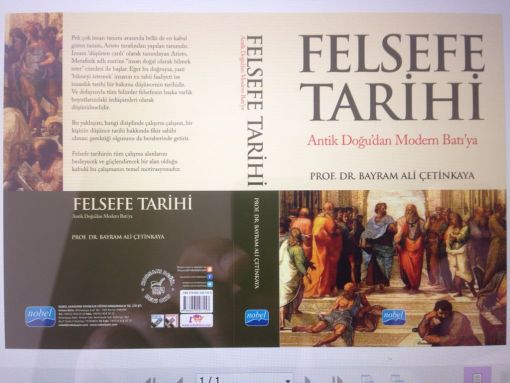



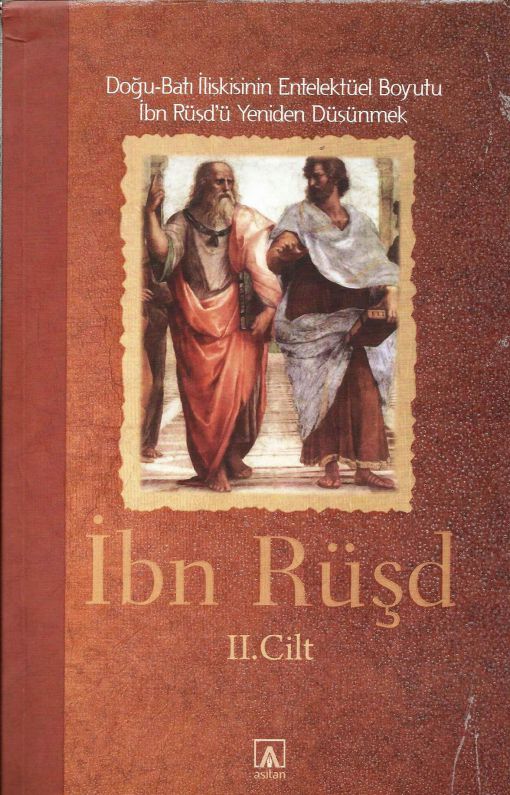
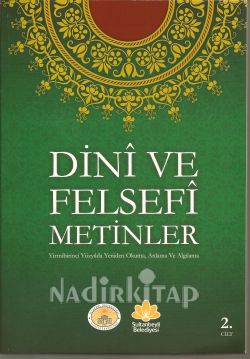
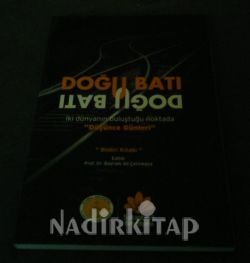





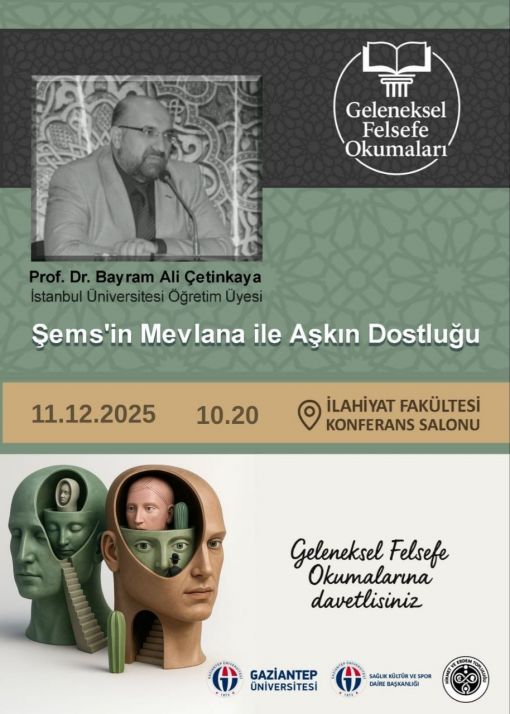
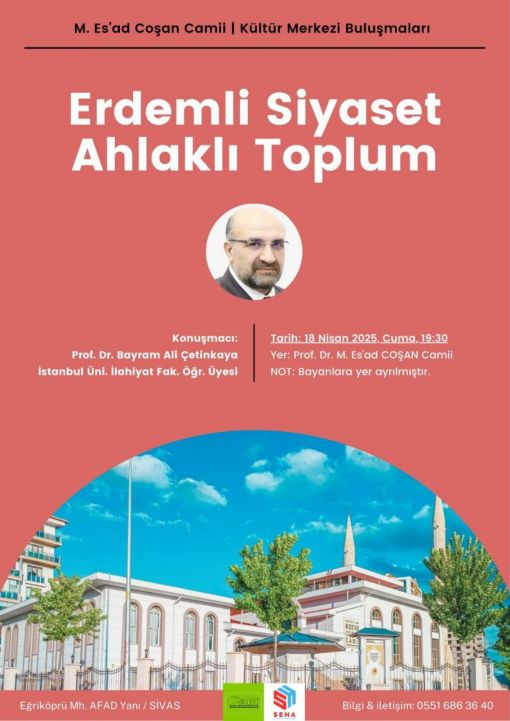

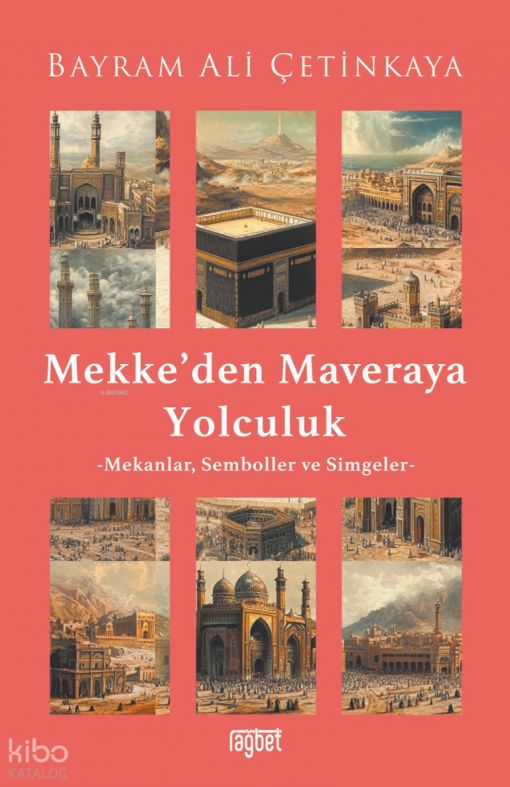

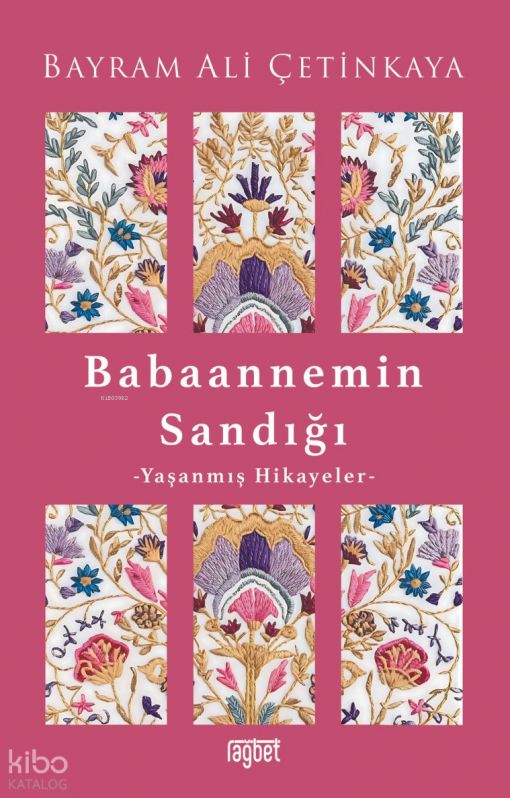
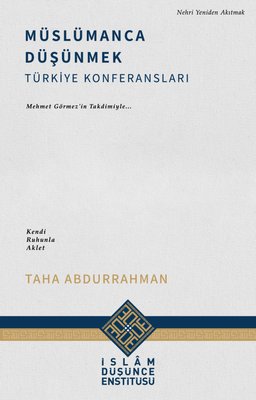



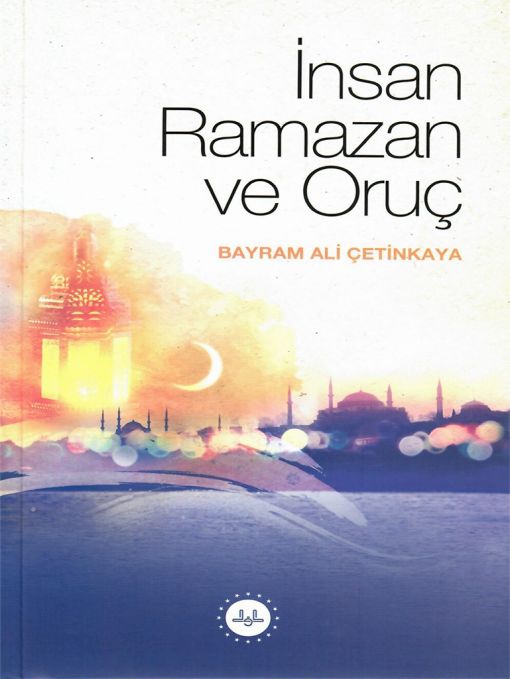


.jpeg)


